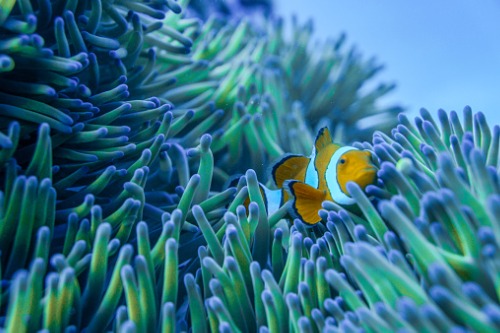
September saw a number of environment-related stories, especially with the Youth Strike 4 Climate movement and the UN Climate Action Summit 2019 happening within a span of a just few days.
On 26 September, World Maritime Day was celebrated. This is a particularly relevant day for Australia’s maritime conservation efforts, as the nation is surrounded by five bodies of water.
Here’s how some Australian universities are making headway in protecting marine life:
Tie-ups
The University of Wollongong (UOW), through its Global Challenges Program, recently awarded $750,000 grant to two projects, one of which will develop the ‘blue economy’ in NSW South Coast.
UOW’s Global Challenges program is an interdisciplinary research initiative which seeks to integrate research across various disciplines to develop holistic solutions to global challenges.
The University granted $400,000 to the project, titled Blue Futures: Managing and planning for coastal change, to ensure that the waters and its resources help boost economic development in the region sustainably.
According to Dr Michelle Voyer, a research fellow at the Australian National Centre for Ocean Resources and Security, the Centre will also look into how technology will aid them in looking for, and dealing with, threats.
“Ultimately we are driven by the global need to develop new economic models that can support our communities but also address the urgent environmental challenges of our time,” Dr Voyer said.
Some 35 UOW academics from various disciplines will be partnering with the Illawarra Local Aboriginal Land Council, the Illawarra Shoalhaven Joint Organisation and the NSW Department of Primary Industries in a bid that the project will be complemented by public programs as well.
Recover and restore
Peter Harrison, a professor at the University, has been leading coral reef restoration and recovery in the Philippines and the Great Barrier Reef. Professor Harrison is joined by Professor Matthew Dunbabin from the Queensland University of Technology.
Prior to the restoration and recovery project, Professor Harrison also worked on developing a larval reseeding technique in the Philippines and the southern Great Barrier Reef a few years back.
Professor Kirsten Benkendorff, a marine scientist at the University, is also working on a study about how pesticides, particularly neonicotinoids, affect sea creatures such as prays and oysters which can absorb the chemical into their flesh.
The use of neonicotinoids is banned in some countries but not in Australia.
“These projects are just a snapshot of the solutions-driven research undertaken at Southern Cross University,” Professor Mary Spongberg, Deputy Vice Chancellor (Research) at Southern Cross University wrote in a recent article at Research magazine.
Professor Spongberg said the projects focus on marine and environmental issues, often interlinked with the communities and the societies of the region in question.
“It is not abstract. It is right here, right now, working genuinely and in collaboration with people all over the world to solve the big problems facing us all. That is research at its best,” she said.
Cleaning up the waters
The Queensland University of Technology’s (QUT) Science and Engineering Faculty recently announced it had come up with a safer way to clean up oil spills.
QUT researchers created of a non-toxic, low-cost and easily-processed foam which can be sprayed on the surface to absorb the toxic liquid.
Associate Professor Jingsan Xu, who led the research team, said the technology can be used even in absorbing other kinds of oil and can be easily scraped then safely disposed.
“Sorbents – large sponges – are also used but only for the removal of final traces of oil or in places skimmers cannot get to. The key to saving the environment from maximum damage is to mop up the oil as quickly as possible,” Professor Xu said.
A skimmer refers to a device which removes oil floating on a liquid surface.
“So what we have focused on is the adaptability and possibilities associated with surfactants which are already widely used in research, industrial production and daily lives via household cleaning products,” Professor Xu added.


